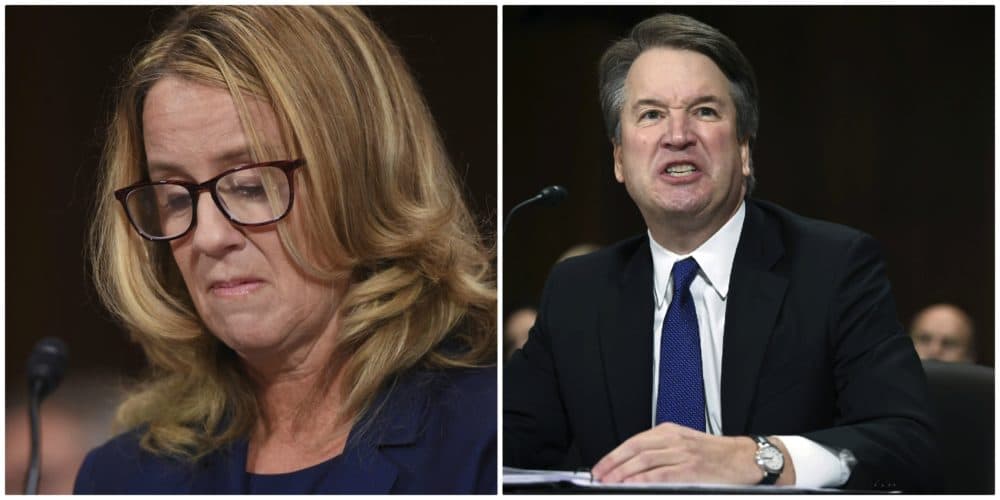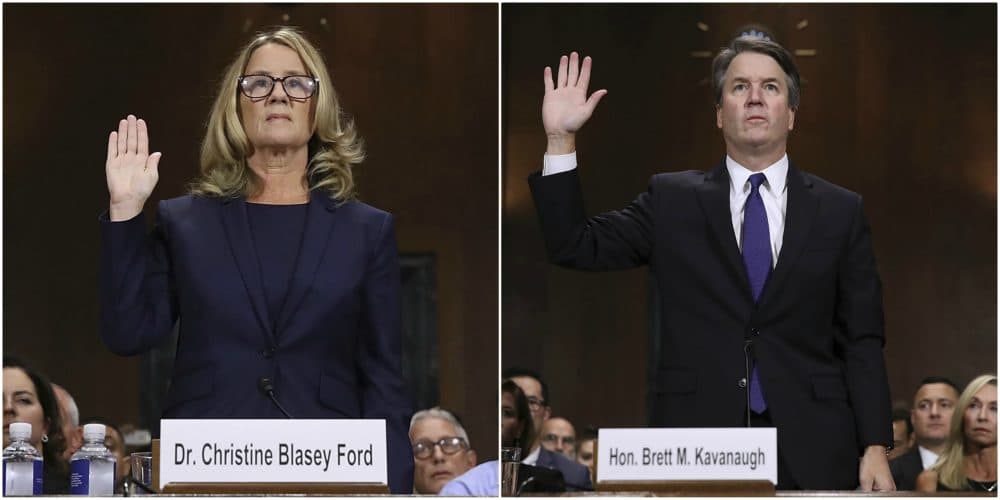Advertisement
Commentary
Women's Vulnerability, Men's Anger: How The Kavanaugh Hearings Symbolize Everything Keeping Us Apart

Happy anniversary. It has been almost exactly a year since The New York Times published the Harvey Weinstein story that launched the #MeToo movement, changing the dynamics between vulnerable women and a cohort of powerful men. These have been 12 months of raw honesty, shifting standards and occasional overreach. We’re still working through the ground rules and the processes. We’ve been due for a public airing.
But the airing we got Thursday in the Senate Judiciary Committee hearing — a spectacle that left so many people riveted, numbed, ranting on Twitter and slamming their foreheads on their desks — set us backwards, not forward. It took a cultural moment and wrapped it in stilted Senatorial process and the ugly history of Supreme Court nomination battles. Sen. Lindsey Graham, so full of misplaced rage, at least had this right in his incendiary rant: what was happening was taking place in “the wrong town, at the wrong time.”
These have been 12 months of raw honesty, shifting standards and occasional overreach.
#MeToo has been an imperfect movement, but at its core, it has been apolitical — or at least, strikingly bipartisan. Its casualties have included Democratic donors and left-leaning entertainers, lefty media elites along with Fox News giants. It has caused us to question cultural touchpoints: the song “Baby, It’s Cold Outside.” The movie “Sixteen Candles.” The ‘90s fate of Monica Lewinsky.
But time stands still in a Senate hearing room. And senators are good at pretending that a forum designed, quite explicitly, for political theater can be a means of getting at the truth. The eight-hour grilling of Brett Kavanaugh and Christine Blasey Ford didn’t take place in a courtroom or a time machine; it couldn’t produce incontrovertible facts. At best, it could have been a mark of progress: proof that senators could handle incendiary accusations with more reflection and respect than they did in 1991, when Anita Hill testified at a strikingly similar hearing.

There were, indeed, some signs of #MeToo’s influence: notably, the fact that the Republican senators, all male, outsourced their questioning of Ford to a calm and understated female prosecutor. (Some time after Kavanaugh took the microphone, she quietly disappeared, leaving Graham and other Republicans to speechify, instead.)
But in general, from Ford’s trembling opening statement through Kavanaugh choked-up denials and angry interruptions, the hearing symbolized everything that’s still keeping us apart. It was a vessel for the fury of a privileged class that stands to lose a measure of its privilege; the frustration of female victims who had long been disbelieved or silenced; the question of how to open the doors for honest accusations while still protecting the rights of the accused.
That’s how the hearing ended: With a rage that left an aftertaste all night, and a realization of how little the #MeToo movement has truly resolved.
By the time Graham launched into his partisan rant — which Republicans apparently took as a rallying cry -- it was clear that the Senate’s broken process had made things worse. Then came the handoff to cable news, where viewers experienced the hearing as they do everything related to politics: through two incompatible lenses, two dueling realities, each of which had found a new champion.
In Ford, generations of women saw a model of quiet strength, bearing her trauma in every syllable, but sharing her story for what she saw as a greater cause. In Kavanaugh, those who fear the excesses of #MeToo — and those who fear its reach, perhaps remembering their own “Sixteen Candles” ways — found a standard-bearer willing to fight back.
That’s how the hearing ended: With a rage that left an aftertaste all night, and a realization of how little the #MeToo movement has truly resolved. Vulnerable women versus angry men. This is where we’ve come in a year.
Joanna Weiss is editor of Experience magazine.
